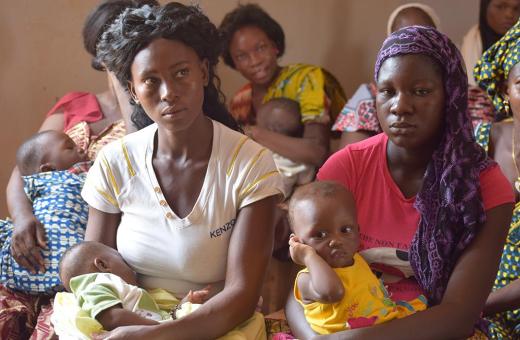In 2005, the Beninese government set up the Indigent Health Fund to facilitate access to healthcare for the underprivileged. In the field, family planning appears as a means of reducing expenditure on this Fund.
Free access to FP services to reduce expenditure on indigent cases…
From the Addis Ababa conference in November 2013 to the London summit in July 2017, Benin has made commitments that would help improve the contraceptive prevalence rate, which turns out to be one of the lowest in the West African sub-region. Although Benin has pledged to increase the amount allocated to the purchase of contraceptive products to 250 million CFA francs by 2018, this commitment will not be honored before the London summit, where the authorities made new commitments. Thus, the Beninese government had pledged to provide free family planning services in public health facilities to the entire Beninese population, including adolescents and young people, by the end of 2019. But this commitment has still not been honored. “FP services are not free in Benin, and fees vary from one locality to another,” laments Nourou Adjibadé of Alliance droits et santé.
This situation has prompted civil society to submit three new commitments to the government. This, with a view to better repositioning FP in Benin by 2026. These new commitments, still at the draft stage, include a 10% increase in the budget allocated to the purchase of contraceptive products from 2022 until 2026, as well as the provision of a range of contraceptive products for young people to choose from according to their preference.
All of which should lead to a clear improvement in the contraceptive prevalence rate, confides Nourou Adjibadé. At the London Summit, Benin also pledged to increase the contraceptive prevalence rate from 17% in 2017 to 22% in 2020 (from 5.4% to 10% for adolescents and young people aged 15 to 24), and to secure and increase by at least 10% a year the government’s share of the budget allocated to the purchase of contraceptive products. At a recent workshop in Cotonou, Dr Gaston Ahounou, Head of the Family Planning Department at the Ministry of Health, reported that “the commitment to free family planning and the commitment to increase contraceptive prevalence remain the least achieved. Modern contraceptive prevalence is estimated at 17% in 2020, against an expected 22%”. He also argues that the PF2020 commitments made in 2017 have been partially implemented.
It’s clear, then, that the road to free FP services is still a long one, and that a glimmer of hope is still hard to see on the horizon. This only increases the risk of clandestine abortions, one of the main causes of maternal death (15%). A fundamental right inherent to individuals and families, family planning is one of the most beneficial interventions for improving health and development in general.


